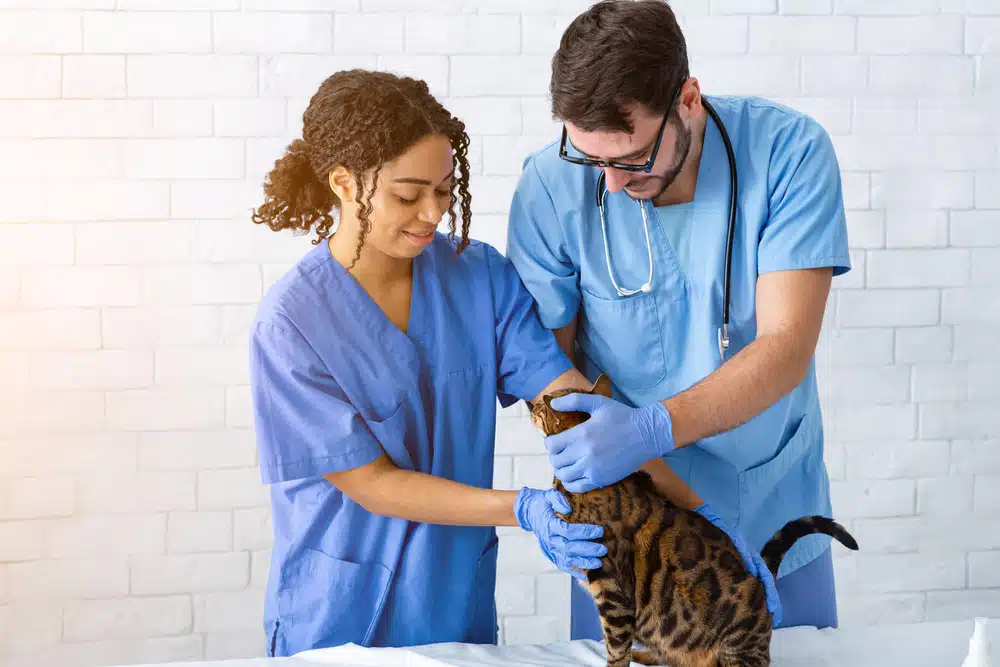 Veterinary legal issues in the UK are complex, and keeping up with the changing regulations can be a challenge for practitioners. Veterinary surgeons must keep up to date with their professional competencies at all times, and make sure they are aware of any new developments in statutes and case law that may affect the way they practice. Informed consent is incredibly important when it comes to carrying out treatments or surgical procedures on animals, as these have the potential to damage an animal’s health if not administered correctly.
Veterinary legal issues in the UK are complex, and keeping up with the changing regulations can be a challenge for practitioners. Veterinary surgeons must keep up to date with their professional competencies at all times, and make sure they are aware of any new developments in statutes and case law that may affect the way they practice. Informed consent is incredibly important when it comes to carrying out treatments or surgical procedures on animals, as these have the potential to damage an animal’s health if not administered correctly.
Veterinary surgeons are also responsible for ensuring that medicines prescribed meet strict proper vet standards, and should take steps to ensure their patients receive adequate support throughout their care. It is also essential that veterinary businesses adhere to health and safety laws, as well as other regulations related to premises design, animal housing and welfare requirements – failure to do so could incur significant risks for vulnerable animals in their care
This article will guide you through the various pieces of legislation a veterinary practice owner needs to understand.
There are a number of laws of particular relevance to veterinarians, such as the Veterinary Surgeons Act, the Veterinary Medicines Regulations, and the Supply of Relevant Veterinary Medicine Products Order.
A veterinary practice can obtain guidance on legislation from the Royal College of Veterinary Surgeons (RCVS). A comprehensive guide to veterinary medicines regulations is available on the Veterinary Medicines Directorate (VMD) section of Gov.uk.
What licences does a vet need?
Here are some things you should know:
- It is mandatory for practicing veterinarians to register with the RCVS and pay an annual retention fee
- RCVS registration is required for all practice premises that supply medicines
- Health and Safety Executive (HSE) authorisation is required if you use x-ray equipment in your practice for research. X-rays are not required if they are used for diagnostic or therapeutic purposes only. There is no need to notify and authorise unless you are using accelerators other than electron microscopes.
- A licence from the Veterinary Medicines Directorate (VMD) is required if your business sells animal medicines wholesale to other businesses, such as pet shops or online pharmacies.
- In order to sell, advise on, arrange or assist in the sale of general insurance (for example pet insurance), you must either be regulated directly by the Financial Conduct Authority (FCA) or become an appointed representative of an FCA-regulated principal (the most common choice). You can obtain more information from the FCA by contacting them
- In order to dispose of waste generated away from the practice, such as used syringes and empty medicine packaging, you will have to register as a lower tier waste carrier. You can register at the lower tier for free and it lasts indefinitely. English, Welsh, and Northern Irish residents can register at the lower tier. In Scotland, waste collectors and transporters must register. Environmental agencies in England, Wales, Scotland and Northern Ireland regulate the registration of waste carriers
- If you produce more than 500kg of hazardous waste per year in Wales, you must register as a hazardous waste producer. Natural Resources Wales is responsible for registration. It might not be necessary for your practice to generate that much hazardous waste, but according to the British Veterinary Association (BVA), many practices find that obtaining a waste carrier registration code is beneficial when an environmental regulator inspects them and makes it easier to consign waste. Regardless of the amount you produce, the BVA recommends that you register. Further information about veterinary waste can be found on the BVA website
- You may need to register as a data user with the Information Commissioner’s Office if you keep computerised records of people’s personal information. GDPR must be followed.
Health & safety, fire
In addition to complying with workplace safety regulations, you must also comply with fire safety regulations.
Employment legislation
Employment legislation must be followed by anyone who employs employees. Legislation covers a wide range of topics, including recruitment, employment contracts, pay, working hours, holidays, employment policies, sickness, maternity, paternity, discrimination, discipline, grievances, dismissals, and redundancies.
Insurance for a vet
Explain in detail how your business will operate to an insurer, and they’ll explain what coverage you need to comply with the law and which other coverage you should consider. The following might be included:
- Professional negligence
- Surgery premises, premises contents, instruments, equipment and stock
- Animals in transit or kept on the practice premises
- Locum cover
- Cash
- Permanent health
- Employer’s liability
- Public liability
- Motor insurance
The British Veterinary Association, for example, may offer favourable insurance deals as a benefit of membership. A comparison form can help you uncover the differences between insurance policies when comparing quotes.
Conclusion
Veterinary practitioners provide vital care to animals, whether maintaining their health through check-ups and vaccinations or treating more serious medical issues. This profession, however, isn’t without legal pitfalls. Veterinary practitioners must be aware of their responsibilities when it comes to liability for their actions, as well as laws for prescribing medicine and regulations for animal boarding services. Knowing what’s legally required of them is just as important as understanding the scientific aspects of veterinary medicine.
Keeping up on the ever-changing legal landscape and trends within the veterinary sector can make all the difference in protecting a practitioner and their clients from any negative consequences associated with mishandled cases or illegal practices.
Lee Jones is a seasoned Business Finance Specialist with over two decades of invaluable experience in the financial sector. With a keen eye for market trends and a passion for helping businesses thrive, Lee has become a trusted advisor to countless organizations seeking to navigate the complexities of finance.


